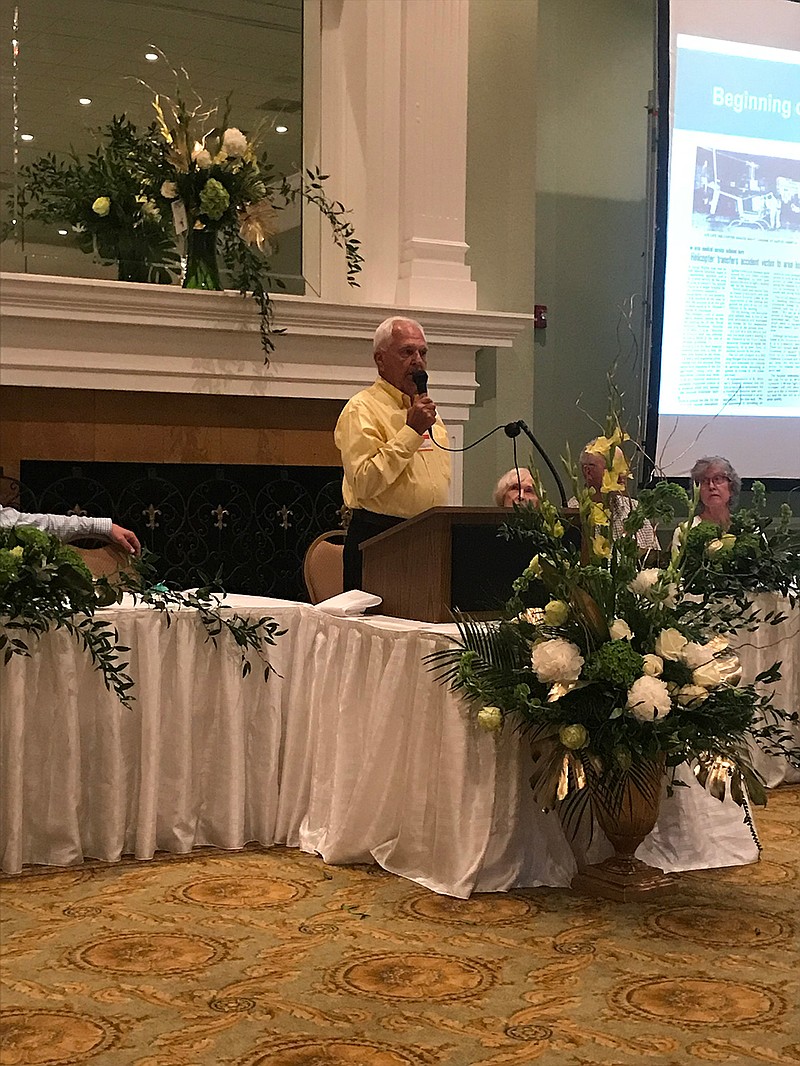Heavy rain didn't dampen the spirits of those who attended LifeNet Air's 35th anniversary celebration Wednesday evening at Northridge Country Club. Former LifeNet patients and the public were invited to the event.
LifeNet Air flew its first patient from Naples, Texas, to Texarkana, Texas, and since then has flown more than 10,000 accident free missions.
The air ambulance was a result of the efforts of Don Ruggles and Roy Morgan. The pair worked to bring the helicopter to Texarkana after Ruggles lost his son due to a hunting accident in rural Arkansas. Morgan started AirMethods, an air helicopter company. LifeNet Air is the second-longest contract for AirMethods.
Ruggles spoke at the event about losing his son Tony Ruggles and how that inspired him to work to bring an air ambulance to Texarkana.
"The main part of this story is if someone has a head injury and they aren't treated within the golden hour, their chances of survival are pretty thin," Ruggles said. "It was 10 1/2 hours before he received extensive medical care."
Tony lived for 17 days before succumbing to his injury.
"I was so traumatized by it. I said, 'One way or another we're going to get a helicopter for Texarkana,'" Ruggles said.
Eventually Ruggles got in contact with Morgan.
"I called Roy Morgan and after telling him my story, he said he had a spare helicopter," Ruggles said.
Morgan, who is retired, also attended the celebration. He saw firsthand the need for an air ambulance program.
"I was involved in a medical flight around the 1960s time frame. It was at a time in history where there weren't dedicated medical aircraft or dedicated medical crews. There was no patient care aboard that flight. We put oxygen on a grandmother who was unconscious and the copilot flew with a baby on his lap," Morgan said.
That planted the seed for him starting a program that provided safety and quality medical care.
"I swore if I could ever do it right it was something I wanted to do," Morgan said.
It took some time but he started his first air ambulance program in 1980. The program in Texarkana was his fourth. Seeing the success of his vision brings a smile to his face.
"I am delighted. Dreams come true," Morgan said.
Providing advanced medical care with LifeNet Air is a life-saving tool for the community.
"Having a helicopter available has made a difference in the lives of many people. We have really good hospitals here but we transport a lot of people out of here for advanced care and getting them there quickly makes a big difference," said David Baumgardner, LifeNet executive director.

